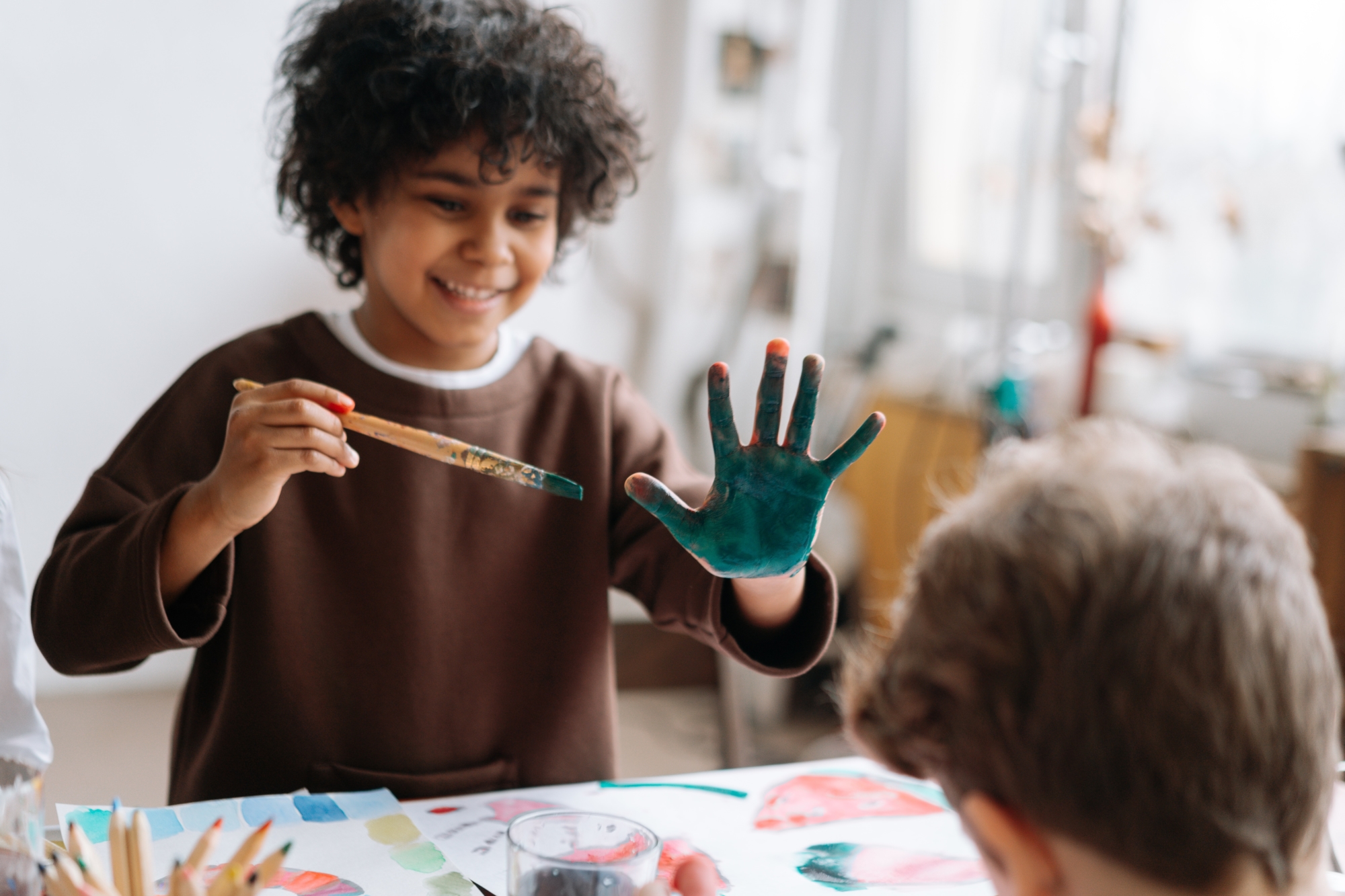
Students, educators, and families alike wish for this summer to be filled with memory-making, joyful arts experiences that offer the foundation needed to reengage students and prepare us for the coming year. By thoughtfully and strategically leveraging available resources, educators can design a student-centered, standards-based approach to arts instruction that equitably attends to social and emotional considerations. The joy of arts learning offers a summer infused with creative possibilities!
Students thrive when learning environments nurture respectful relationships and link learning to the learner. Students engage in the learning process when the content harnesses their curiosity, connects to their lives, and amplifies their voice. These are the environments of arts learning. The arts disciplines (dance, media arts, music, theatre, and visual arts) provide creative opportunities for students to foster positive social-emotional relationships, connect with their teachers and peers, and actively engage in the artistic processes of creating, performing/presenting/producing, responding, and connecting. These cognitive and physical actions of arts learning promote students’ artistic literacy and skill development. Educators’ careful attention to the creative processes, content area standards, learning environments, and students’ needs when planning summer arts instruction sets the foundation for students to thrive.
The statewide network of The California Arts Project (TCAP) supports educators in designing such instruction, summer or year-round. By tapping into these standards-based resources, student interests, and their own imagination, educators are equipped to design a memory-making summer of powerful and transformative arts learning to usher in the new school year.
California has developed guidance resources to support students’ artistic literacy development and advance social-emotional learning. The new 2020 California Arts Education Framework’s core themes of equity, access, and inclusion articulate a contemporary vision for arts learning that conveys the vital role arts education has in students’ artistic literacy, cognitive, social, cultural, and emotional development. The 2019 California Arts Education Standards encompass authentic arts processes and approaches in each arts discipline to promote students’ artistic literacy development and social and emotional growth. These discipline-specific, process-oriented, grade-appropriate, and inquiry-based standards build students’ capacities in developing social and emotional connections, such as setting and achieving positive goals, feeling and showing empathy for others, building relationships, understanding and managing of emotions, and developing ethical responsibility. Educators can find additional social and emotional learning resources on the California Department of Education webpage.
AUTHOR
Kristine Alexander, Executive Director, The California Arts Project
